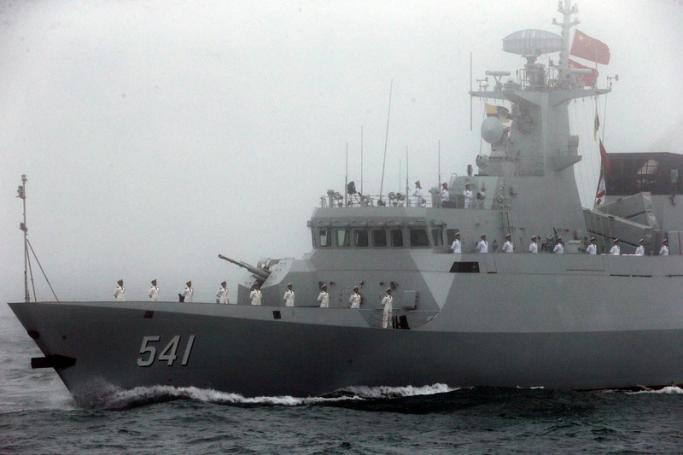China continues to fortify its controversial presence in the South China Sea that risks triggering global conflict. Some analysts opine that it could lead to a war between the US and China too.
There are many issues that are tied to these international waters. Critical trade routes run through them. These issues have drawn the attention of most navies of the world. China's presence here has reached record levels with plans for even more growth. To counter this, thankfully, US has also enhanced its naval presence in the area. Even the EU has released its Indo Pacific strategy. The UK is also sending a fleet of warships to the region that is its largest deployed fleet. Hence the question of is there going to be a war is highly valid.
A war here, though seems highly likely. China gradually asserts its presence and influence in disputed areas, acting as if all these parts are under its sovereignty. It dismisses legal resolutions and avoids large scale conflict with a slow and patient approach called strategic delay. China will continue on this course for the foreseeable future by relying on small scale gray zone tactics to expand its reach in south china sea.
China is aggressively competing with other global powers to dominate the market for cleaner alternatives to fossil fuels. China wants to be a world leader in global manufacturing of advanced electronics.
These advanced electronics rely on extraction and refinement of rare earth metals. Access to ample supply of these rare earths will be critical to unfettered growth in these sectors over the years to come. China's core strategic goal is to maintain its market power in the rare earth's market. Over the last 3 decades China has dominated the market for production and export of rare earths, often producing well over 90 percent of the world’s consumption of rare earths. China has market power to control prices and quantities of rare earths. It can constrict or expand exports as it wants to maintain its preferred prices and supplies.
Actually, China has successfully leveraged raw rare earths from African states such as Congo, but the long term stability of access to these external resources remains an issue. In response to this threat, China has begun to look offshore for a way to solidify its supply of rare earths. The seabed of the South China Sea contains an abundant supply of small lumps of minerals known as polymetallic nodules. China has developed the most advanced deep-sea extraction technology in the world, and its ability to harvest polymetallic nodules and the rare earths within them is unparalleled. China wants to ensure continued access to these seabed minerals by treating these waters as sovereign territory.
China understands its power over rare earths is for a limited time. If it raises prices too much, it will erode its own market position. Hence, China is after the South China Sea. It needs to be countered by a strong show of power by US and allies in the region.












